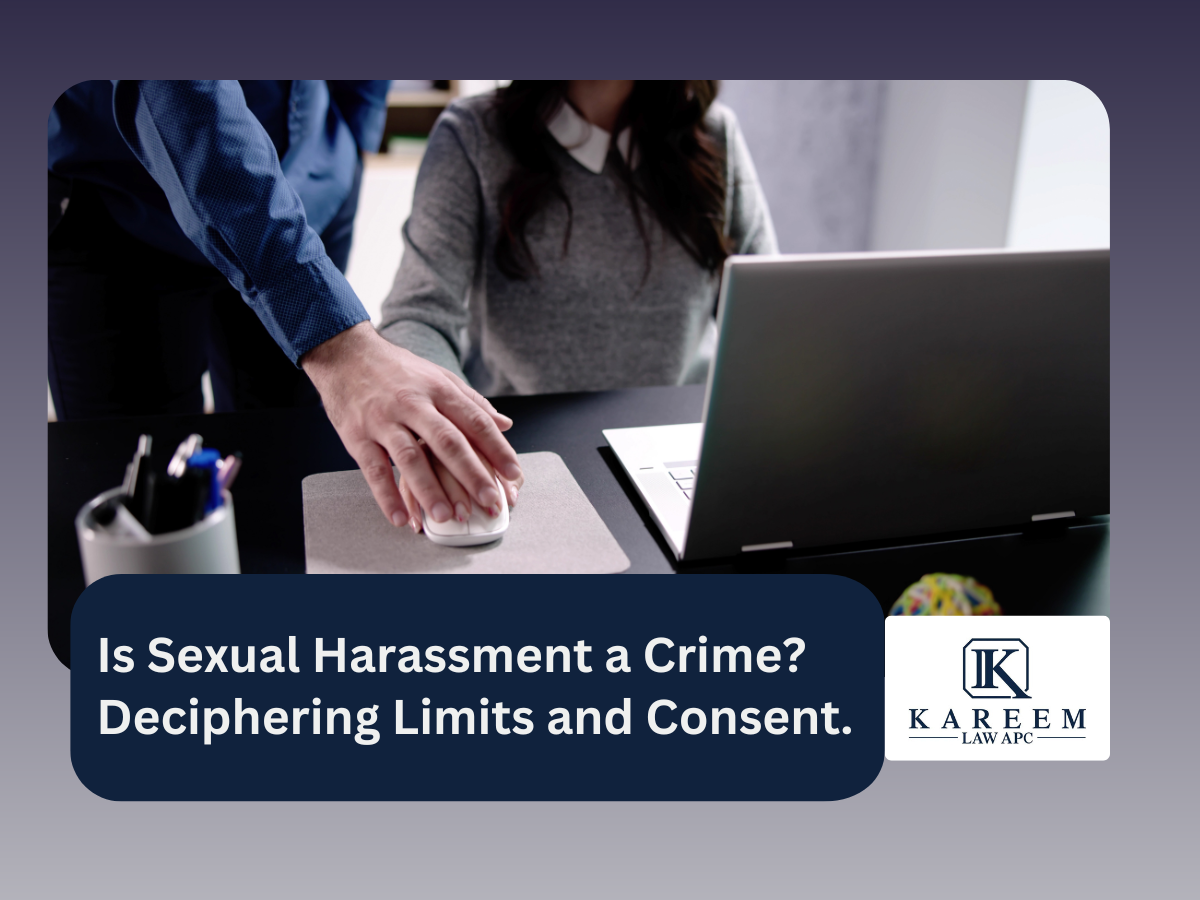Sexual harassment happens at work, school, and in public. People fear sexual abuse. People confuse crimes, consent, and law. Sexual harassment a crime that includes unwanted advances, words, or actions. The victim felt uncomfortable in their environment. They completed several duties. These include sexual insults, unwanted contact, threats, and violence. This article discusses the limits and consent related to sexual harassment.
What are the Limits in Sexual Harassment a Crime?
Let’s explore the limits and consent of sexual harassment a crime.
- Bad behavior: Touching someone or saying sexual things without their consent is sexual harassment. Unwanted behavior includes sexual harassment. This category includes touching another person, making sexual jokes about them, or engaging in any behavior that causes emotional distress.
- Record the consents: To understand something, you must consider the setting in which it occurs. What is acceptable alone may not be appropriate at work or school. This depends on the situation.
- More difficult: A person often bothers another when one has too much authority. This can happen between a boss and an employee or a teacher and a student. This makes the situation harder for both parties. An imbalance exists between the two sides in the situation. A lack of equilibrium makes it harder to understand consent and report abuse.
- Repeated inappropriate behavior: A single harsh word does not always mean harassment. However, repeated inappropriate behavior often counts as harassment. Guidelines consider the severity of inappropriate behavior and how often it happens.
- No physical contact: A conduct can be considered harassment even without physical contact between the parties involved. The action can still be harassment if it creates a hostile, threatening, or abusive environment.
How to Understand Consent in Sexual Harassment a Crime?
One can understand consent in sexual harassment a crime in these ways:
- Positive and Continuous: Consent should be clear, voluntary, and ongoing. Do not assume consent from silence or lack of resistance. Express consent clearly. You can revoke it at any time.
- Must Have Capacity: Individuals must have the capacity to give consent. They must be of legal age and not incapacitated by drugs, alcohol, or mental impairment.
- Power Imbalance: In workplaces or educational settings, a power difference can complicate consent. Pressure or fear of consequences can make individuals feel they must comply, even if they do not truly consent.
- It Causes Misunderstanding: Cultures understand consent and sexual behavior differently. This can cause misunderstandings and show the need for clear communication.
- Learn and understand: We must increase awareness about what consent means to prevent sexual harassment. Educational programs help individuals recognize healthy boundaries and respectful behavior.
Wrapping Up
Avoid people who commit sexual harassment a crime. The law, culture, and personal interests are all included. Laws and agreements can make regions safer. Shifts happen all across the world. Disclosing instances of abuse and consent violations can improve trust. This holds individuals accountable. We will discuss these concerns together moving forward. People should never feel in danger at home or at work.
Kareem Law APC represents the best attorney at law criminal defense with extensive experience in handling sexual discrimination cases in the workplace. Contact us today. Schedule a free consultation with our criminal defense lawyers at (888) 506-6519.









